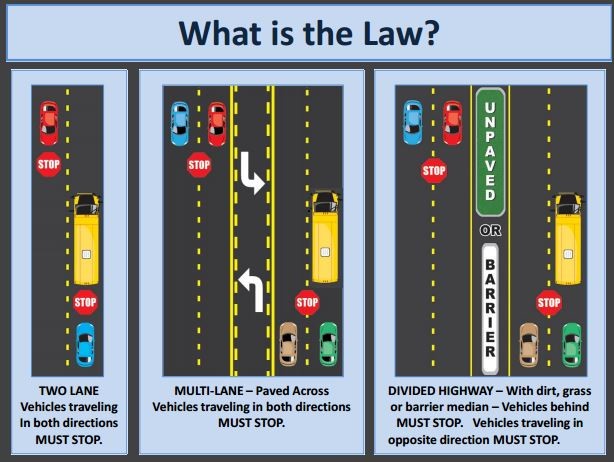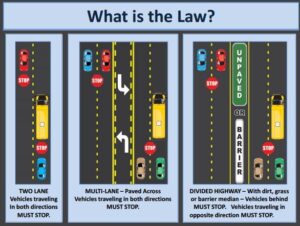Labor Day weekend is fast approaching, signaling the unofficial end of summer and the re-
opening of our local schools. On the morning of Tuesday, September 3rd, students will be
loading up their backpacks and heading off to start a new scholastic year. And with the
imminent return of school buses to our roads, now is a great time for everyone to refresh your
knowledge on school bus safety for drivers and pedestrians.
School buses carry the most precious cargo of all: our children. It should be common knowledge
for every driver to know that it is against the law to pass a stopped school bus with its red lights
on, but the number of violations issued to motorists for passing stopped school buses tells a
very different story. With Rockland County’s newest school bus camera program in place for the
first time last year, over 17,000 tickets were issued county-wide for violations involving passing
a stopped school bus. That’s 17,000 incidents where an impatient, reckless, or distracted driver
put the safety of children in jeopardy. In speaking with a large number of residents about the
issue, it is clear that many drivers do not fully understand the rules of passing a stopped school
bus.

The first thing that drivers should understand is that it is important to be present when behind
the wheel. Paying attention to your surroundings on the road is the most basic component of
safe driving. If you see a school bus, your expectation should be that it will be stopping
somewhere along its way. Flashing yellow lights on a school bus are not an invitation to speed
up to pass the bus. Rather, it is a signal that you should slow down, as the bus is about to stop
in order to pick up or drop off a student. Once the lights are flashing red, New York State law
states the following:
■ When a stopped school bus flashes its red light(s), traffic that approaches from either
direction, even in front of the school and in school parking lots, must stop before it
reaches the bus. You should stop at least 20 feet away from the bus.
■ When you stop for a school bus, you cannot drive again until the red lights stop flashing
or when the bus driver or a traffic officer signals that you can proceed. This law applies
on all roadways in New York State.
■ You must stop for a school bus even if it is on the opposite side of a divided highway.
The third bullet point above is the one that trips most people up. NYS law requires drivers to
stop even when approaching a bus from the opposite direction, and even when the opposing
lanes of traffic are separated by a barrier. This even applies to state roads such as Route 303 and Route 304. This is particularly important information to know, as most school bus-related
deaths and injuries occur while children cross the street after being discharged from the bus.
The minor inconvenience of having to wait a minute for a child to safely enter or exit a school
bus is far outweighed by the value of that child’s life. Please remember this each and every time
you are driving behind or by a school bus.
Fines for violations of the law also serve as an important deterrent. If you are caught passing a
stopped school bus, fines range from a minimum of $250 for a first violation to a maximum of
$1,000 for three violations in three years. If you are convicted of three of these violations in
three years, your driver license will be revoked for a minimum of six months.
Safe and responsible driving should be a year-round practice, but our children deserve an even
greater level of awareness during the school year. Please obey speed limits and other traffic
control devices while on the roads. As always, the Clarkstown Police Department will be out in
force conducting extra enforcement at this time of year to protect our children.
When you are out driving, please be present, and be prepared to stop for school buses. I hope
all our students, teachers, bus drivers and all school staff have a wonderful start to the school
year.


